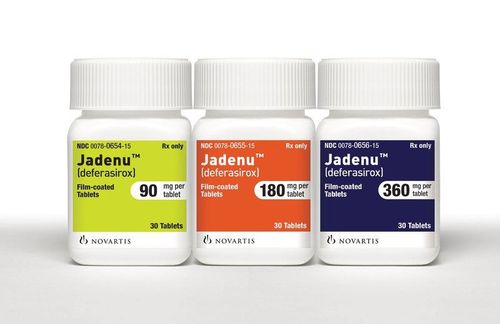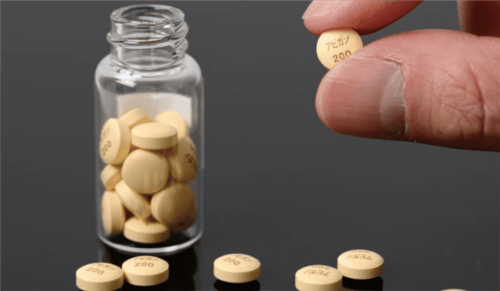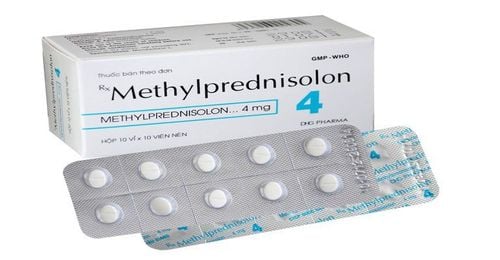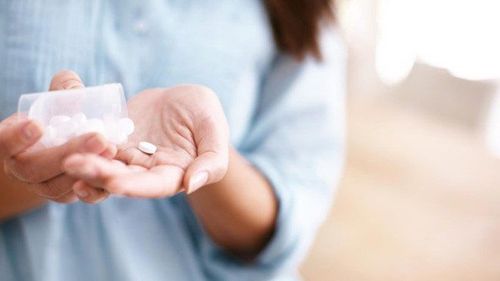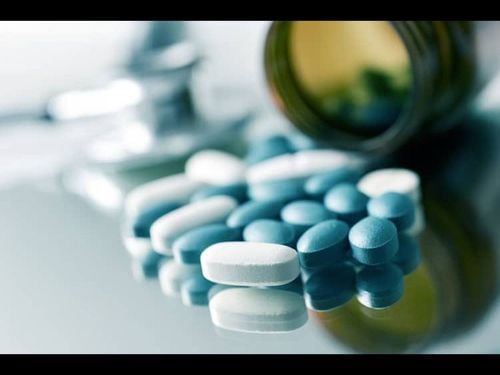This is an automatically translated article.
Bendeka drug has the chemical component bendamustine hydrochloride used in the treatment of blood cancer. The drug will be indicated in cases of patients with chronic lymphocytic leukemia, or non-Hodgkin lymphoma. However, the drug Bendeka can cause some unwanted side effects for the patient during treatment. Therefore, the patient needs to learn carefully about the drug Bendeka before using and must comply with the instructions of the patient. doctor.
1. Mechanism of action of the drug Bendeka
Bendeka has a group of substances called Bendamustine hydrochloride that have anti-cancer effects thanks to the alkylation process. Alkylation then damages the cell's DNA and prevents the cell from dividing and possibly dying. Because in fact, cancer cells divide faster than normal cells and Bendeka can affect the binding as well as the death rate of cancer cells compared to normal cells. Then the drug Bendeka will slow the growth of cancer cells.
2. Indications for the use of the drug Bendeka
What is Bendeka? Bendeka is indicated in the treatment of cancer with chronic lymphocytic leukemia, non-Hodgkin lymphoma.
However, Bendeka drug may be contraindicated in cases of weak immune system, tuberculosis, shingles, liver disease, kidney disease...
3. Dosage and how to use Bendeka
The recommended dose of Bendeka can be 100mg/intravenous for 10 minutes on the 1st and 2nd day of a 28-day cycle. Patients should perform a maximum of 6 cycles.
Bendeka is given through a vein and how often it is used will depend on the type of cancer you have. When performing Bendeka intravenous injection, patients should pay attention to choosing a reputable facility to avoid causing pain to the patient. Bendeka may increase the risk of blistering and pain or leaking out into a vein at the injection site and lead to tissue damage that can be serious.
If the person has been treated for hepatitis B, using Bendeka can make the hepatitis virus become active again and the condition may get worse. Therefore, patients need to check liver function regularly during treatment to look for abnormalities.
4. Unwanted side effects and some notes when using the drug
Using Bendeka during treatment may experience some unwanted side effects. Depending on the specific case, there will be different levels of reaction. When experiencing symptoms causing side effects, patients should discuss with medical staff for timely medical support.
Infection with neutropenia when using Bendeka. White blood cells play an important role in the body's fight against infections. When treated with Bendeka, the white blood cell count may decrease, increasing the risk of infection in the patient's body. Patients may experience symptoms such as fever over 38 degrees Celsius, colds, sore throat, shortness of breath, burning when urinating and pain states that do not go away... immediately to the treating doctor for examination and timely medical assistance. A low red blood cell count leads to anemia. When the number of red blood cells is low, the patient's body will be tired, shortness of breath, chest pain. If the red blood cell count is too low, a blood transfusion is needed. Decreased Platelet Count: Platelets function in the body's blood clotting process. Therefore, when the platelet count in the body decreases, the patient has a high risk of bleeding. Nausea and vomiting may occur with the use of Bendeka. You can tell your doctor to prescribe medication to help control nausea or vomiting. In addition, the doctor will also prescribe appropriate dietary changes to improve the current medical condition. For example, the patient should avoid using foods that can aggravate these symptoms such as foods that are greasy, fatty, or have sour spices.... Diarrhea. Diarrhea may occur in cases treated with this medicine. So your doctor may prescribe some medications to help improve diarrhea. In addition, patients should eat low-fiber foods, boiled chicken, white rice, to limit diarrhea. The soluble fiber in some liquid foods can help reduce diarrhea. Patients should drink from 8 to 10 glasses of non-alcoholic, caffeinated water each day to limit dehydration. The patient is always tired. After cancer treatment, patients always feel exhausted and tired and this condition takes a long time to improve. Therefore, it is necessary to be guided to adjust as well as plan for a long rest and save energy for important activities. In addition, exercise can be done to improve fatigue by walking, relaxing... Secondary melanoma: There is very little risk of developing the disease with the use of Bendeka. such as leukemia, sarcoma, lung cancer, or other cancers. The disease can occur after many years of treatment and is often associated with high therapeutic doses and frequency of repeated treatment. Rash. Some patients may have a rash, itchy red bumps when using Bendeka. So you can use an alcohol-free moisturizer to apply. In case the skin is bleeding or cracked, it should be cleaned before applying the cream Side effects of Bendeka related to infusion. During the treatment can cause chills, fever, flushing, shortness of breath and high blood pressure. Patients should be careful to prevent this reaction. And infusion-related reactions can occur in the first cases of tumor lysis syndrome: If there is a large amount of tumor cells in the body, the use of Bendeka medicine can be used. increased risk of tumor lysis syndrome. Then the tumor cells die too quickly and their waste overwhelms the body. Toxicity on the liver. Bendeka can cause hepatotoxicity and liver function tests should be performed to control this condition. When patients experience symptoms such as yellow skin and eyes, dark brown urine, abdominal pain... are all signs of liver toxicity, so the patient should pay attention. Progressive multifocal encephalopathy. Brain infections, although rare, are quite serious to the health of patients. Signs of this symptom that develop over a few weeks or months include changes in mood, behavior, confusion, memory loss, vision changes, etc. Birth defects. Bendeka medicine in direct contact with the fetus can cause birth defects. Therefore, women who are pregnant or who are planning to have children should not use Bendeka. Therefore, effective birth control is essential during treatment with Bendeka and for at least 3 months after starting treatment with Bendeka. Above are the sharing of Bendeka drug for readers' reference. If you need detailed information for yourself, please contact the hospital to schedule an examination and advise on specific medications that should be used for your current medical condition.
Please dial HOTLINE for more information or register for an appointment HERE. Download MyVinmec app to make appointments faster and to manage your bookings easily.
Reference source: oncolink.org



